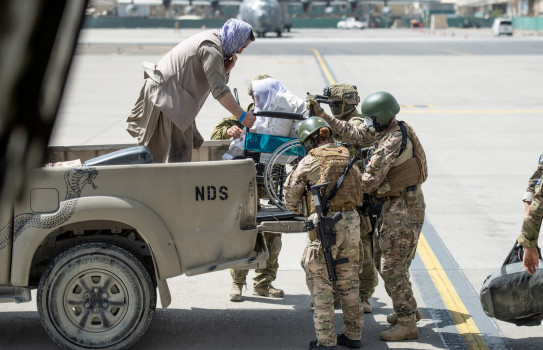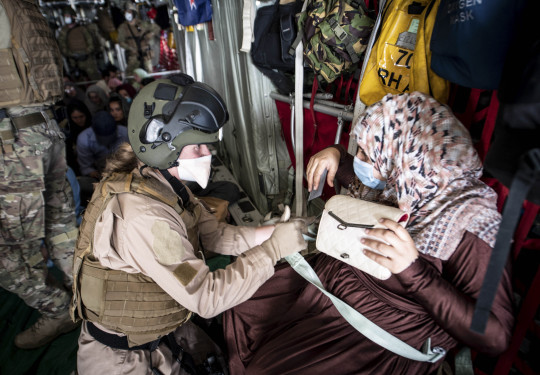New Zealand Defence Force incorporates gender perspectives on military operations
The New Zealand Defence Force (NZDF) is ensuring more personnel are trained to bring a gender perspective to military operations and deployments through the implementation of the United Nations Security Council resolution on Women, Peace and Security.
28 August, 2024
Director Women, Peace and Security Lieutenant Colonel Laura Cranston said the NZDF had made a consistent effort to grow the number of personnel trained as Gender Focal Points who advocate for an all-inclusive lens to be implemented across the NZDF when deployed on operations and disaster responses. More than 200 NZDF personnel have been trained already as gender focal points, with that number set to grow.
Gender focal points are personnel who are trained to advocate and implement a gender perspective lens within the branch, unit or headquarters they are attached to in the NZDF. The use of a network of Gender Focal Points is recognised internationally as best practice for including an all-inclusive perspective on military operations.
A gender perspective is the ability to detect if and when men, women, boys and girls, are, or would be, affected differently to a situation due to their gender - recognising they have different needs, experiences, and circumstances.
“Whether planning for an emergency response in New Zealand, or for an international operation, it’s important for gender perspectives to be at the centre of decision making,” Lieutenant Colonel Cranston said.
“We all have a part to play in how we respond to emergencies. When we deploy, we need to ensure we’re not thinking with a mindset that leaves people out,” she said.

The NZDF Female Engagement Team assist a woman during the evacuation operations in Kabul, Afghanistan in 2021.
In an emergency, there are the needs people immediately think of such as medical help, food and water, but period and baby products are also essential.
On the recent military assisted departure flights from New Caledonia, the NZDF provided parents with baby formula and child seat belts for the aircraft, knowing some of those affected by the pause on commercial flights from New Caledonia would be younger family members.
“Correct planning for operations and how we respond to emergencies is critical. Through gender analysis training, we are providing personnel with tools to incorporate when they plan deployments, prevent or resolve conflicts, or respond in emergency situations,” Lieutenant Colonel Cranston said.
The NZDF’s Women, Peace and Security initiatives fall under United Nations Security Council Resolution 1325, which affirms the importance of gender perspectives in peace negotiations, humanitarian planning, peacekeeping operations and post-conflict peacebuilding and governance.
Women, Peace and Security seeks to ensure a gender perspective is considered in all operations by everyone, not just women, to improve situation awareness, inform military planning, and support better decision-making. “We’ve made continuous implementations in this area, but still have a way to go. We are working towards this training being imbedded throughout the organisation to have a sustained impact in this space,” Lieutenant Colonel Cranston said.
